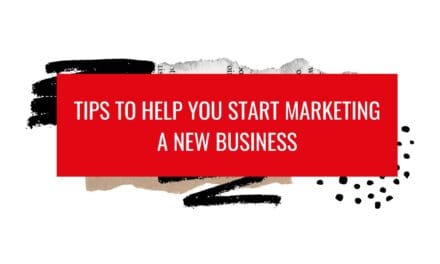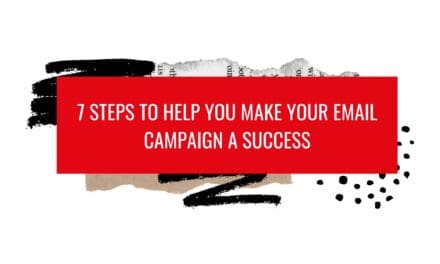Blog writing is one of the most accessible tools that a business operator can use to reach an audience and have people engage with their brand.
The challenge however, lies in building the audience who you regularly engage with. In many cases this comes down to a little social media and marketing legwork, but the good news is there are a host of tools for bloggers to enlist when it comes to extending their content reach.
Here’s an insight into creating great content and growing your audience at the same time…

Content is king
Without further ado, let’s cut to the chase about organically growing a blog audience: Content is King.
There’s no point enlisting the tools available if your audience soon tires of what you have to say. This means blog content should always be:
- Engaging
- Relevant
- Timely
- Original
If you’re serious about creating an audience, blogging should be done regularly with a new blog post weekly, fortnightly or monthly.
And the benefits include:
- Building client engagement with your brand
- Creating a position of authority in your industry
- A more personalised communication tool
- Sharing and viral potential
- Search engine optimisation to shift your website up the Google ranks
Growing your audience
There’s a general rule of thumb in blog writing – the process is 20% creation, 80% sharing…but how do you ensure that sharing has maximum reach? Well the short answer is by curating your email list, enlisting social media, and marketing your blog as a component of your business. So, here’s how it works…
Your email list
As a service or product-based business, chances are you have a healthy list of client contact details that also includes their email address.
This existing bank of contact details is the first port of call, with some great tech tools available to assist in making the process easier, including Mailchimp.
Mailchimp allows you to create and send emails to lists of subscribers at the push of a button, and you can insert links and introductions to your blog as part of the deal.
The software also allows you to set up templates, with your logo, contact details, website and social media links.
That means you can use your latest blog in conjunction with general email marketing, newsletters and promotions to your clientele.
Importantly, this drives traffic to your website, which helps in improving those Google rankings. Meanwhile, the people who have subscribed to your list have said ‘yes, we want to hear from you!’ so make the most of it.
Encouraging subscribers
Now that’s all well and good, but how do you start to build on this already existing database? Well, there are a host of ways and means, including:
Join our mailing list
A simple pop-up on your website that offers your audience the chance to read your latest insights is a great way of extending that all-important audience reach. And in most cases it’s as simple as installing a simple widget or plug-in to your actual site.
The feature allows site guests to add their email address and a few minor details, so you can update them via email on your latest posts.
RSS feeds
RSS, or really simple syndication, is another way to spread the word about your latest offerings. Again, it’s as simple as installing a widget or plugin to your site.
Clients who subscribe to your RSS feed are able to access fresh blogs instantly. They can also arrange them into folders, just like email, and set alerts and sounds for when a particular web feed is updated.
Social media
It’s almost a no-brainer, but blog authors should be taking advantage of tools that enable them to instantly feed their content to social media. Missinglettr makes this super-simple, while some website hosts, like WordPress and Wix, have plugins that automatically feed your content through to relevant LinkedIn, Facebook, Google+ or Twitter pages.
The most important feature here is to provide only a brief snippet on social media, so users have to link back to your site. There, you can offer them the further option to join your mailing list or RSS feed for regular updates.
And when it comes to spreading the love on Facebook, don’t forget there’s more than one space available:
- Your Business Page
- Your Personal Profile
- Facebook Groups
Social sharing
Meanwhile, using social media to full effect also involves having sharing capability on your site, so users can share your content themselves via social media.
This is as simple as installing social media sharing buttons on your blog page that encourage users to post your content to their own Facebook, LinkedIn, or Instagram pages. Again, this works on the premise that the intro is posted but the full post is only read on your page where users can then join your mailing list.
Encourage engagement
Blogs provide a unique opportunity for clients to actively engage with your business, so ensure that they can by enabling commenting as well as social sharing.
If people see their voice is reflected in your content, they’re more likely to sign up and come back.
Bookmarking Sites
Social bookmarking platforms like StumbleUpon, Digg, Delicious, Reddit, Tumblr or Scoop.it can help you reach new readers.
There’s often a good return of traffic when content is shared via these means. It’s even better when someone shares your blog posts on these platforms, so add them to your social sharing buttons.
Customer loyalty
There’s more than one reason business uses customer loyalty campaigns, and part of it is to improve their marketing reach.
When a client joins a customer loyalty program, they submit their email address and other contact information. This allows them to receive offers, but also gives you, as the business, the capability of promoting content to them via email to keep your business front of mind.
If you have a customer loyalty program, use it to offer tips, insights and information via your blog.
Good old-fashioned promotion
While technological tools are all well and good, do not overlook the power of good old-fashioned promotion. Ensure your website is well-publicised across your branding, and note that people can sign up to receive the latest news.
You may even want to specifically promote your news and blog updates via a Facebook ad or by encouraging people to physically sign-up at your counter. If you have a hard copy newsletter, promote the link to your blog page and mailing list sign-up within it.
Use your insights
Your website and social media all have tools at hand to help you establish the type of content that attracts the greatest interest, and you should be using these to your advantage to grow your audience.
If it’s apparent some topics work better than others, hone in on them and increase your focus on similar themes.
Top tools
Now that we’ve got the means of building your audience down pat, there are some excellent tools available to assist in the process. Some of the best include:
Missing_Lettr: Missinglettr creates strategic, automatic social media campaigns that drive traffic for an entire year, leaving you to focus on writing your next blog post. It takes your blog posts and creates them into social media posts that you approve and share via a schedule throughout the year.
Meet Egdar: Everything you need to write and schedule great posts and tweets… without writing them!
Edgar automatically writes status updates for you from articles or blogs – all you have to do is click a button and share. It’s practically magic!
Edgar’s social media automation puts your content in front of a bigger audience, driving traffic to your site 24/7!
MailChimp: I have tried other platforms but Mailchimp is my favourite. Easy to use and simple to create campaigns sign up forms and more. MailChimp is the world’s largest marketing automation platform. Millions of customers, from small e-commerce shops to big online retailers, use MailChimp to reach their customers and grow their business.
Key takeaways
Establishing an audience and email list takes time, patience and a little perseverance, but is well worth the effort to build a brand and create credibility. Just remember:
- Good content allows organic growth
- Use your existing email database
- Give people a way to join your mailing list
- Share your content on social media
- Allow others to share and comment on your content
- Use available insights to create consistently compelling content
- Employ the available tools to make the job easier
Want more Blogging Tips? Take a look at the Blogging for Business eCourse



















This is one of the best posts I have read on here and thank you for posting it!
I always learn so much from you.